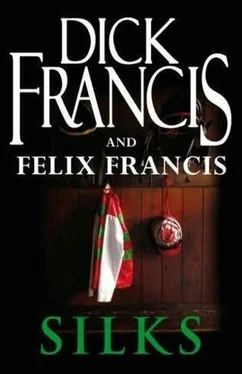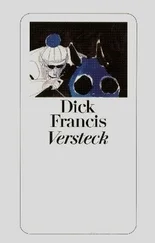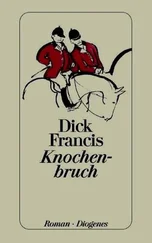I went back to my room and looked at the desk of that colleague. As always, it was almost impossible to see the wood from which it had been constructed. The tough old English oak was doing its duty supporting stack upon stack of papers and box files. I was the tidiest of the three of us who shared this space, and even my area could look like a war zone at times. Stuff that couldn’t fit on our desks was stacked in boxes on the floor or in the full-length bookshelves down the side of the room, opposite the windows. But nothing was ever lost. At least that’s what we told everyone and it was almost the truth, although maybe not the whole truth.
There had been a large white envelope in my box in the clerks’ room and I sat at my desk and looked at it. This envelope, however, had been expected and contained no sinister threatening note, and no photograph. I had ordered a full transcript of the Julian Trent appeal hearing from last November and now I eagerly scanned its close-typed pages looking for a certain name.
Josef Hughes of 845 Finchley Road, Golders Green, north London, was the rogue solicitor who had forced the appeal in the first place. It was his supposed intervention with the jury that had got Trent off. If, as I suspected, he had been coerced into giving his evidence to the Court of Appeal, then he might be prepared to help me find out how and why Julian Trent was connected to Scot Barlow’s murder. I went to Golders Green first thing on Wednesday morning.
Josef Hughes went white and his knees buckled as soon as I mentioned Julian Trent. I thought he was going to pass out completely in the doorway of his bed-sit, one of half a dozen or so bed-sits crammed into the large 1930s-built semi-detached house at 845 Finchley Road.
He might have collapsed right down to the floor if I hadn’t held him by his left elbow and helped him through the door and into the room. He sat down heavily on the side of the double bed that took up most of the available floor space. We were not alone. Ayoung woman, not much more than a child, sat on an upright wooden chair nursing a young baby. She didn’t move as I helped Josef over to the bed but sat silently staring at me with big brown, frightened eyes.
I looked around. Apart from the green blanket-covered bed and the chair there was a small square table under the window, another upright chair that matched the first, and a tiny kitchenette in the corner, half hidden by a thin curtain that was badly in need of a wash.
I went over to the kitchen sink to fetch Josef a glass of water. There were no glasses visible but there was a moderately clean though badly chipped coffee mug upturned on the drainer. I splashed some water into it and held it out to him.
He looked up at me in real horror, but he took the mug and drank some of the water. The colour in his face improved fractionally.
‘It’s all right,’ I said in as comforting manner as I could muster. ‘I haven’t been sent here by Julian Trent.’
At the sound of the name, the young woman gave out a slight moan and I was suddenly afraid that she too was about to pass out. I stepped towards her as if to catch her baby but she pulled the child away from me and curled her body round it as protection.
What on earth had Julian Trent done to these people to make them so afraid?
I looked around the room again. Everything was very basic, with threadbare carpets, paper-thin curtains and bare cream-painted walls that were overdue a redecoration. A plastic tubular travel cot was folded and leaned up against the wall behind the door with three blue baby romper suits hanging on it to dry.
‘We used to have the big flat on the top floor,’ said the girl, watching me look. ‘With our own bathroom. Then Joe lost his job and we had to move down here. Now, we share a bathroom on the landing with three other rooms.’
‘How old is the baby?’ I asked her.
‘Eight months on Friday,’ she said. I thought she was close to tears.
‘What’s his name?’ I asked her, smiling.
‘Rory,’ she said.
‘That’s nice,’ I said, smiling at her again. ‘And what’s your name?’
‘Bridget,’ she said.
We sat there in silence for a while, Josef and me on the bed, with Bridget holding Rory on the upright chair.
‘What do you want?’ Josef said eventually.
‘Tell me what happened,’ I said quietly.
Josef shivered next to me.
‘It was a man,’ said Bridget. ‘He came here, to our flat upstairs.’
‘No,’ said Josef suddenly and forcefully.
‘Yes,’ said Bridget back to him. ‘We need to tell someone.’
‘No, Bee,’ he said again firmly. ‘We mustn’t.’
‘We must,’ she pleaded. ‘We must. I can’t go on living like this.’ She started to cry.
‘I promise you,’ I said, ‘I’m here to try and help you.’ And to help myself.
‘He broke my arm,’ said Bridget quietly. ‘I was six months pregnant with Rory and he came into our flat, hit me in the face and punched me in my stomach. Then he broke my arm by slamming it in the door.’
‘Who did?’ I asked her. Surely, I thought, Julian Trent had been in prison.
‘Julian Trent’s father.’
In the end, between them, they told me everything. It was a horror show.
The man who had said he was Julian Trent’s father had arrived wearing a smart suit and tie one evening soon after Josef had arrived home from his work at the Crown Prosecution Service. Josef had qualified as a solicitor only the year before and the CPS was his first job and he had loved it. He and Bridget had married while he was at the College of Law and they had moved into their first family home together in preparation for the birth of their first child. Everything was fine and they had been blissfully happy together. That is, until the shadow of Julian Trent had been cast over their lives.
At first the man had been nice and had even offered Josef some money to get some information for him.
‘What information?’ I asked him.
‘Stuff that was already in the public domain,’ he said.
‘What sort of stuff?’ I asked again.
‘Names and addresses of jurors,’ he said.
‘In the Julian Trent trial?’ I asked, but I already knew what the answer would be.
He nodded. ‘It was the first trial I had worked on at the Old Bailey. And the jurors’ names are in the transcript,’ he said in his defence. ‘Their names had been read out in open court.’ He was trying to justify his actions. The jurors’ names may have been in the public domain, but their addresses wouldn’t have been.
‘And we really needed the money,’ said Bridget. ‘What with the baby coming, there were things we had to buy.’
‘And it wasn’t against the law,’ said Josef, almost in despair.
‘But you knew it was wrong,’ I said to him. It may or may not have been against the letter of the law, I wasn’t sure, but it was definitely against the Law Society rules, and would quite likely have been in contempt of court.
He nodded again.
‘So when did he come back?’ I asked them.
‘The following day,’ Josef said. ‘He was meant to be bringing the money for the information I had ready for him.’
‘But he hit Bridget instead?’ I said.
He nodded again, and now tears welled up in his eyes. ‘I couldn’t believe it. He just walked straight into the flat and hit her. He knocked her down, then he dragged her over to the door and broke her arm while she was lying on the floor. It was horrible.’ The tears began to flow and he swallowed hard. ‘I felt so helpless to stop it.’
Bridget placed a hand on his arm. His tears flowed faster. ‘It all happened so fast,’ he wailed. It was obviously his inability to protect his wife that hurt him most.
Читать дальше












